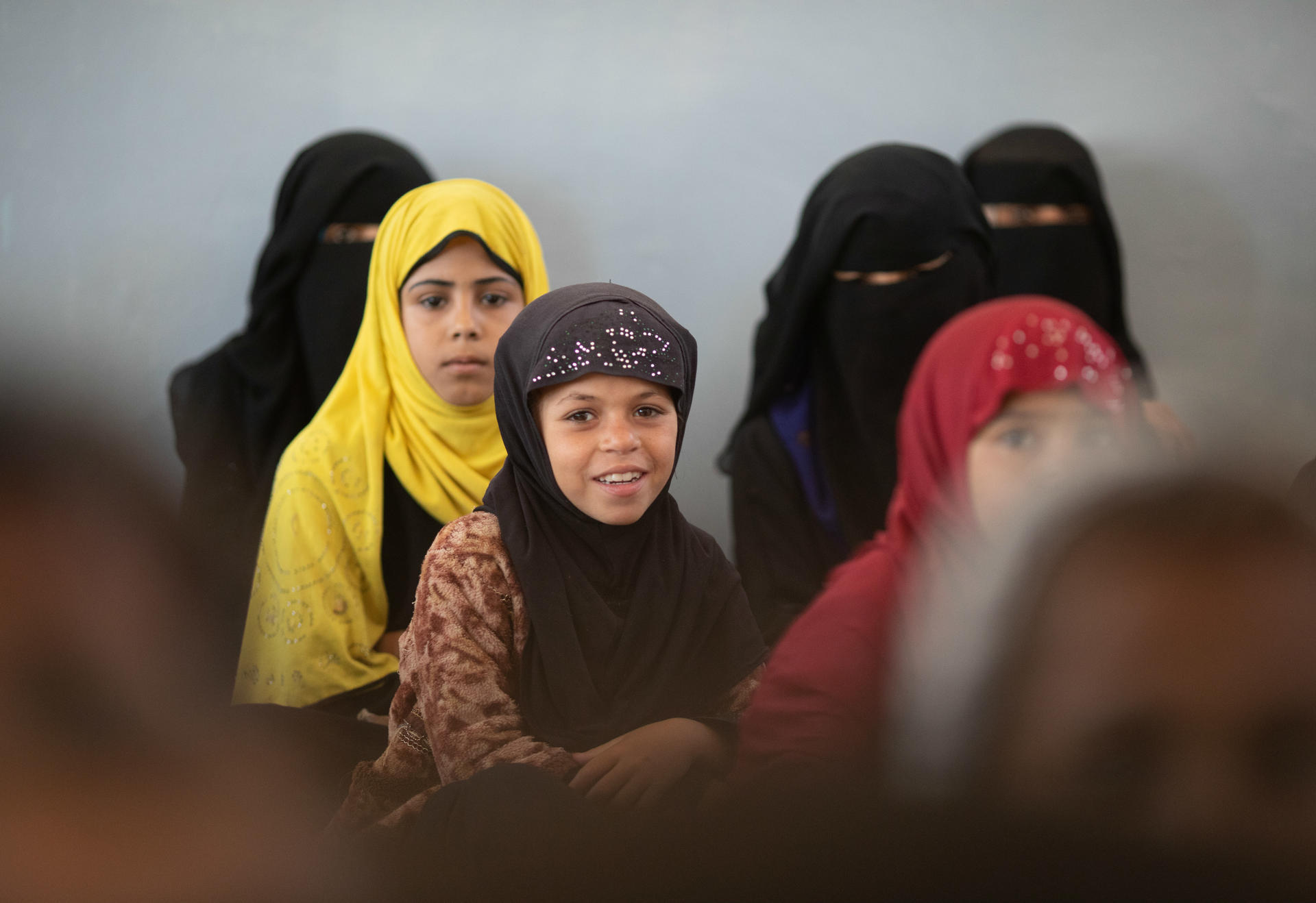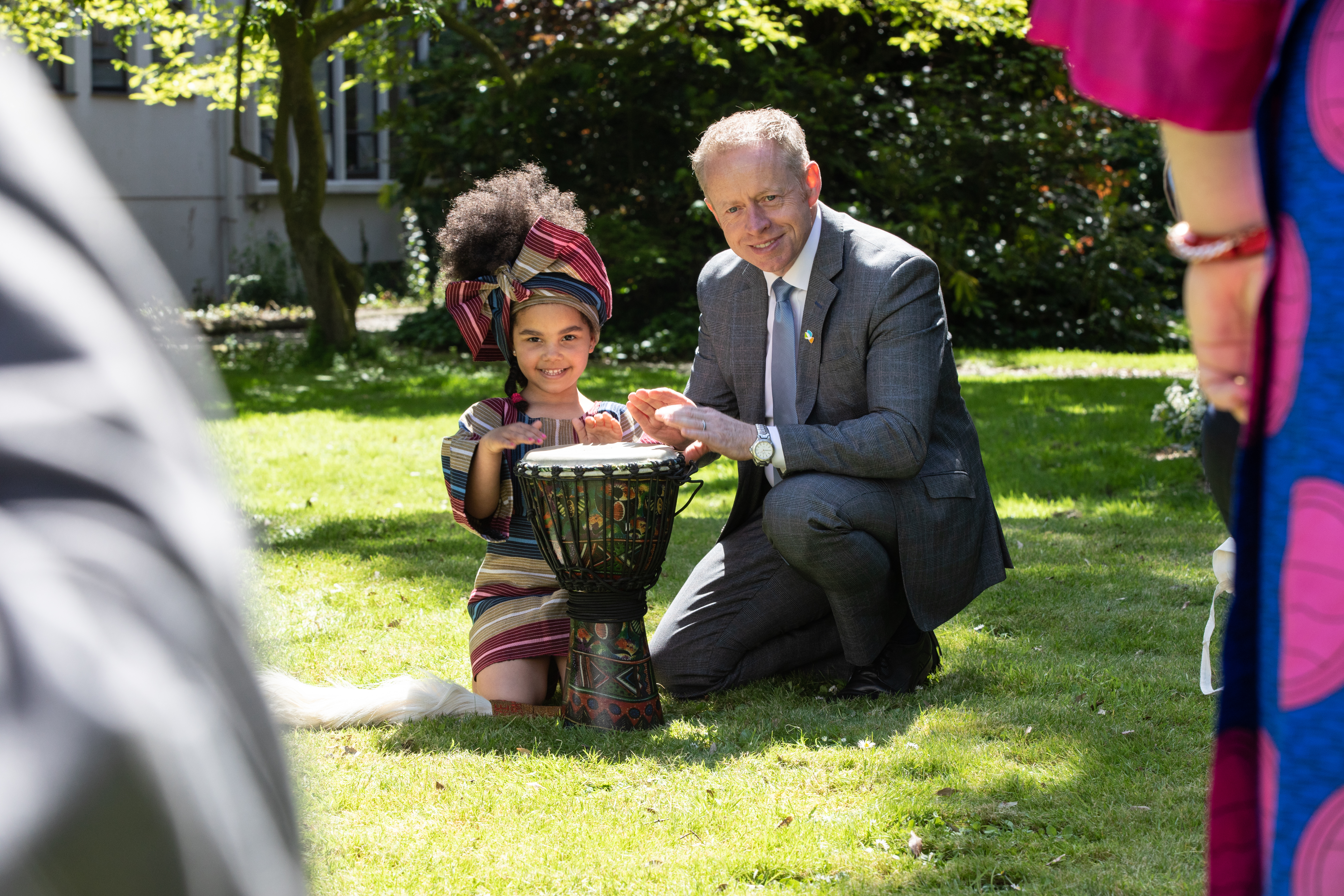Irish Aid strategic partnership with the International Rescue Committee
Blog
24 May 2019
Photo: Will Swanson/IRC
Strengthening prevention and response to gender based violence in emergencies and protracted humanitarian crises:
Irish Aid strategic partnership with the International Rescue Committee
For fifteen years, Irish Aid has supported the lifesaving work of the International Rescue Committee (IRC). In 2015, IRC and Irish Aid developed the first emergency fund dedicated to GBV response globally. This January, Irish Aid and the IRC began a new three year strategic partnership, focussed on addressing gender-based violence (GBV) in acute emergency and protracted humanitarian crises.
Under this partnership, Ireland has committed to provide IRC with €4.5 million to deliver life-saving services for women and girl survivors of GBV in five of the most protracted, underfunded humanitarian settings in the world. Alongside this sits emergency response funding which will enable the IRC to rapidly put GBV services in place during the very earliest phase of an emergency.
This strategic partnership will also focus on strengthening leadership to improve GBV prevention and response within the humanitarian system. This will include, providing support to generate new evidence on the funding gaps and other barriers to tackling GBV in emergencies, which will be used to highlight the need to prioritise women and girls affected by violence.
This week, both Irish Aid and the IRC are attending Ending Sexual and Gender-based Violence in Humanitarian Crises, a high-level conference hosted by the Government of Norway, the UN Office for the Coordination of Humanitarian Affairs (OCHA) and other partners, where donors are expected to announce new financial and policy commitments.
Ahead of the Oslo Conference, the IRC has released a preview of new research on current levels of funding for GBV in emergencies. Staggeringly, it reveals that funding allocated specifically to GBV amounted to just 0.12% of total humanitarian aid over the three years 2016-2018. It warns that during the same period, two thirds of funding requests for GBV in emergencies went unfunded, leaving a gap of over $100 million. Throughout the conference, the IRC is calling on donors to triple their GBV funding commitments in order to start to close the funding gap. The IRC has also looked at funding gaps in the specific context of Yemen. In its report - Protection, participation and potential: women and girls in Yemen’s war, the IRC highlights a dramatic increase in GBV since the onset of war in Yemen, and calls for increased funding to address it as a matter of priority.
The discussions in Oslo highlighted the urgency of action towards ending GBV. Ireland has placed gender equality at the heart of its new policy for international development, A Better World. The policy commits to increasing Ireland’s support to programmes directly related to achieving gender equality including preventing and responding to gender-based violence in emergencies.
Ending gender-based violence also forms a central pillar of Ireland’s Third National Action Plan on Women, Peace and Security, which will be launched next month. The plan will include specific actions to further the elimination of gender-based violence in emergencies and outlines Ireland’s commitment to increase funding to gender equality, including GBV programming.
Ireland will deliver on these commitments through practical support. There is a pressing need for more GBV specialists at field level, so that organisations are able to meet the specific needs of women and girls, which includes reducing the risks they face of sexual exploitation by humanitarian workers. These are all issues which the IRC hopes to address through our ground-breaking strategic partnership with Irish Aid.


